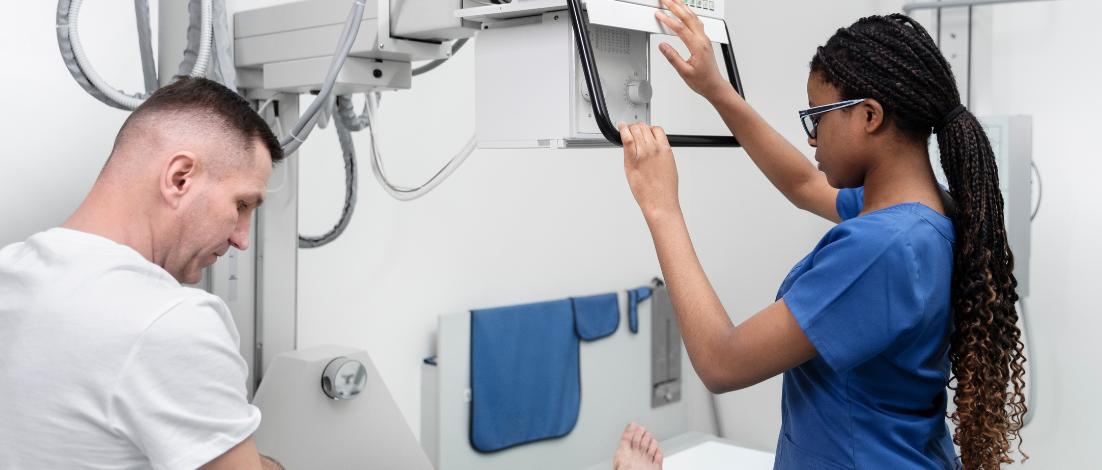Navigating the VA disability claims process can feel overwhelming, especially when faced with the possibility of denial. In 2023, approximately 35% of initial VA claims were denied, often due to avoidable errors like insufficient evidence or missed deadlines. From submitting thorough medical records to meeting critical deadlines, taking proactive steps may help you receive the benefits you’ve earned..
Let’s explore the common pitfalls veterans face and actionable strategies to overcome them, ensuring your claim is as strong and complete as possible.
#1: Including Incomplete or Nonspecific Evidence
Submitting incomplete or nonspecific evidence is a major pitfall. The United States Department of Veterans Affairs (VA) requires clear and detailed documentation that directly connects your current condition to your military service. Avoid submitting generic medical records or summaries. Instead, highlight specific diagnoses, treatment plans, and how they relate to your service-connected disability.
Instead, you can:
- Gather Detailed Medical Evidence: Focus on obtaining medical records with specific diagnoses, treatment plans, medications prescribed, and doctor’s notes that directly link your condition to your military service.
- Seek Professional Help: Consult with your doctor or a medical professional specializing in veterans’ health issues. They can tailor reports and highlight relevant aspects of your medical history.
- Consult Legal Experts: Accredited attorneys specializing in VA claims can advise on the type of evidence most impactful for your specific case.
#2: Missing Deadlines
Missing critical deadlines is another common issue that can severely impact the success of your claim. For example, failing to file a Notice of Disagreement (NOD) within the one-year appeal window could result in the VA closing your case, making it significantly harder to revisit or overturn their decision later. Time-sensitive claims also risk being delayed or denied if evidence isn’t submitted promptly.
Instead, you can:
- Create a Deadline Tracker: Use a physical or digital calendar to log all key dates, such as filing deadlines for the initial claim, appeals, and new evidence submissions. Set reminders well in advance.
- Seek Help Early: Engage a VSO or representative immediately after a denial to ensure timely filing of appeals, such as Notices of Disagreement (NODs) or supplemental claims.
- Stay Proactive: Gather and submit evidence as soon as possible to avoid last-minute delays.
#3: Confusing New vs. Material Evidence
Failing to distinguish between new and material evidence can weaken your case and result in unnecessary delays. New evidence refers to information that wasn’t included in your original claim. In contrast, material evidence is the one that could directly impact the VA’s decision. Without a clear understanding of these terms, veterans risk submitting evidence that doesn’t satisfy VA requirements, resulting in rejected appeals or supplemental claims.
Instead, you can:
- Understand the Difference:
- New evidence: Evidence not previously considered by the VA.
- Material evidence: Evidence that could directly influence the VA’s decision.
- Provide Strong Examples: Examples include updated medical diagnoses, buddy statements corroborating service-related events, or newly obtained service records.
- Educate Yourself: Read official resources like the VA’s guidelines on evidence submission to fully understand what qualifies as new and material evidence. Read our article on Submitting New & Material Evidence: Timelines and Processes to learn more.
#4: Overlooking Existing Evidence
Many veterans underestimate the importance of evidence they already possess, such as old service records or medical reports. Ignoring this information can lead to missed opportunities to strengthen your claim. Even past buddy statements or previously ignored medical reports could provide vital proof of service connection or continuity of symptoms.
Instead, you can:
- Reassess Your Files: Review all your service and medical records for details relevant to your claim.
- Leverage Existing Resources: Utilize buddy statements, private medical reports, or past VA correspondence as part of your evidence package.
- Seek a Second Opinion: Have a professional review your existing evidence to identify overlooked but critical details.
#5: Poor Organization
Submitting disorganized evidence can make it difficult for the VA to process your claim efficiently. When evidence is scattered, incomplete, or without context, it increases the likelihood of mistakes or delays. Poorly organized submissions can result in the VA overlooking key pieces of evidence.
Instead, you can:
- Use a Binder: Organize all your documents in chronological or categorical order. Use tabs or labels for easy reference.
- Prepare a Cover Letter: Include a concise cover letter summarizing the evidence and explaining its relevance to your claim.
#6: Not Using Certified Mail
Submitting claims or evidence without proof of delivery can lead to disputes over whether the VA received your documents. Lost or misplaced submissions could result in significant delays or even denials if evidence is not considered in time.
Instead, you can:
- Send Certified Mail: Always use certified mail with a return receipt for physical submissions to ensure proof of delivery.
- Submit Online When Possible: Use the VA’s online claim portal for secure and trackable submissions. Save confirmation emails or screenshots as proof.
- Follow Up: Contact the VA after submission to verify they received and processed your documents.
#7: Not Gathering Military Records
A lack of military records can leave significant gaps in your claim, making it harder to establish service connection or document injuries and exposures. Without these records, the VA may find your evidence insufficient to justify approval. This is yet another one of the common VA Claims Mistakes with an easy fix!
Instead, you can:
- Request Records Early: Use resources like the National Archives Veterans’ Service Records website to obtain your records promptly.
- Use FOIA if Necessary: If standard requests fail, file a Freedom of Information Act (FOIA) request to access your military service records.
- Get Assistance: Whether you’re just starting your application or involved in the appeals process, you have a right to bring medical evidence to your claim.
Our licensed medical experts can help with medical evidence that:
-
- Capture your complete medical picture (including diagnoses, symptoms, impairment levels and root cause).
- Tell the most accurate version of your disability story to share with the decision makers that matter.
Understanding these common VA Claims Mistakes and their solutions won’t necessarily avoid denials, but it can help better position you to obtain the benefits you’ve earned.











